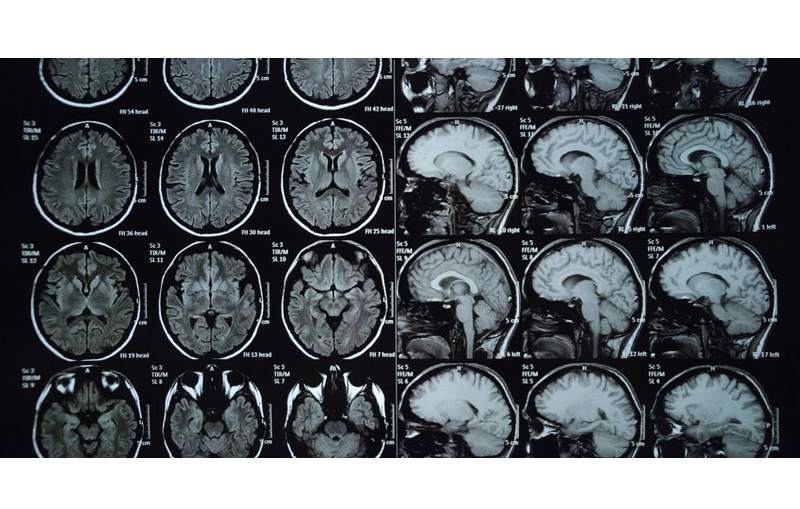Magnetic Resonance Imaging (MRI) is a highly advanced imaging technique that produces clear, detailed images of internal structures. Head and neck MRI is particularly useful for detecting tumors, infections, and nerve damage, as well as monitoring disease progression to guide effective treatment plans. This article explores the key aspects of head and neck MRI, including the indications for the scan and the step-by-step process involved.
1. Indications and Contraindications for Head and Neck MRI
Head and neck MRI is a non-invasive imaging modality that does not use X-rays or any radioactive substances, making it a safe option for most individuals. It allows early detection and precise assessment of various conditions affecting the head, face, and neck.
1.1. When Is Head and Neck MRI Recommended?
– Routine Health Screening: Individuals undergoing periodic health check-ups to detect early abnormalities in the head, face, or neck.
– Diagnosis and Disease Evaluation: The scan is recommended in cases of suspected:
Primary or metastatic tumors in the head and neck region.
Osteomyelitis, epidural hematomas, or spinal cord infections.
Acute soft tissue injuries, fractures, or vertebral compression in the cervical spine.
Upper airway obstruction or vocal cord paralysis.
– Treatment Planning: MRI of the head and neck provides critical information before procedures such as biopsies, surgeries, chemotherapy, or radiation therapy.
– Monitoring Disease Progression: The scan helps assess tumor development and treatment response.
– Detection of Abnormalities: MRI can evaluate issues involving the oral cavity, tongue, salivary glands, throat, larynx, eye sockets, nasal cavity, ear canals, jawbone, cheekbones, and carotid arteries.

Brain and neck MRI is a modern, non-invasive imaging diagnostic method.
1.2. Contraindications for Head and Neck MRI
While MRI is generally safe, certain conditions may restrict its use:
– Pregnancy (First Trimester): Pregnant women in the first three months should consult their doctor before undergoing an MRI.
– Metallic Tattoos: Tattoos containing iron oxide may be affected by the strong magnetic field.
– Claustrophobia and Psychological Conditions: Patients with severe anxiety or those unable to remain still for extended periods may require special accommodations.
– Presence of Metallic Foreign Objects: Individuals with shrapnel, surgical implants, or metallic fragments from previous injuries may not be eligible for MRI.
– Implanted Medical Devices: Pacemakers, hearing aids, metallic orthopedic implants, and dental prosthetics can be influenced by MRI’s magnetic field.
– Contrast Dye Sensitivities: Those with a history of allergic reactions to contrast agents or impaired kidney function may not be suitable for contrast-enhanced MRI of the brain and neck.
2. The Head and Neck MRI Procedure
Head and neck MRI is performed following strict medical protocols to ensure high-quality imaging and patient safety.
2.1. Preparation Before the Scan
– Medical Consultation: A doctor will review the patient’s medical history and determine if MRI of the brain and neck is appropriate.
– Pre-Scan Instructions: Patients must disclose any medical conditions, previous surgeries, or implants that may interfere with the MRI process.
– Dietary Guidelines: Unless specified otherwise, fasting is not required for head and neck MRI, with or without contrast enhancement.
– Metallic Object Removal: Jewelry, watches, magnetic cards, and electronic devices must be removed before the scan. Patients will be provided with appropriate hospital attire.
– Anxiety Management: Patients with concerns about the procedure should consult their doctor or MRI technician. In some cases, mild sedatives may be prescribed to help relax and minimize movement, ensuring optimal image quality.
– Following these guidelines ensures a smooth MRI process and accurate diagnostic results.

Before undergoing an MRI scan, patients need to be examined and assessed by a doctor.
2.2. During the Scan
After verifying the patient’s information and confirming safety measures, the technician will position the patient on the MRI scanner’s movable table. Soft padding and stabilizing straps may be used to minimize movement. A specialized radiofrequency coil will be placed around the head and neck area to capture high-resolution images.
During the scan, the MRI machine generates loud noises from magnetic pulses. Patients are given noise-canceling headphones and can communicate with the technician via an intercom.
For contrast-enhanced MRI, an intravenous (IV) line will be inserted into the patient’s arm to administer the contrast agent. The technician will then initiate image acquisition using a connected computer system, ensuring comprehensive and detailed imaging for precise diagnosis.
2.3. After the Scan
Brain and neck MRI results are typically available within 30 minutes and will be reviewed by the attending physician.
Most patients experience no side effects after the scan and can resume normal activities immediately. However, those with specific post-scan instructions should follow their doctor’s advice carefully.

The MRI results are sent to the treating physician for an appropriate diagnosis.
3. The Importance of Brain and Neck MRI in Early Detection
Head and neck MRI is a modern diagnostic tool that provides safe, highly accurate imaging for detecting underlying conditions. Early screening can help identify potential health issues, allowing doctors to devise timely treatment plans and prevent complications. If you experience unusual symptoms in the head or neck region or require a comprehensive health check-up, consider undergoing a MRI of the brain and neck to ensure optimal health and well-being.








